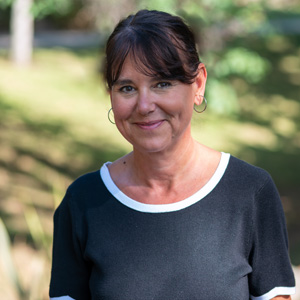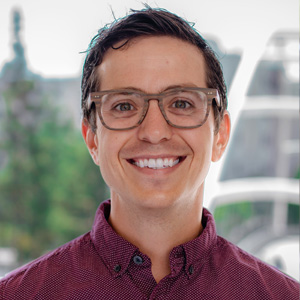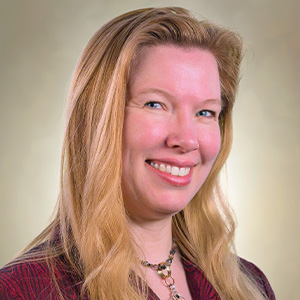Applications Now Open!
Spring Start: June 1 - Sept. 30
Fall Start: Oct. 1 - May 15
Click here to view upcoming application and document submission due dates.
Earning your B.S. in Child Development degree from SDSU Global Campus will give you the tools you need to help children in your community grow into healthy and productive adults. SDSU’s degree completion program is driven by research, theory, and above all, a passion for children and families.
About the Program
The Bachelor of Science in Child Development Degree Completion Program can help you turn your passion for children and healthy childhood development into a rewarding career. Led by renowned faculty from SDSU’s Department of Child and Family Development, this program is designed to help you understand the physical, cognitive, and social development of children in the context of families, communities, and culture.
The program includes a focus on early childhood development as well as classes on older children and families. If you’re passionate about building stronger communities through our children, this program is for you!
$32,435
Estimated Cost
Includes Fees
2 years
Completion Time
Hybrid
Course Format
Courses 100% Online + Field Placement Components*
Whether your goal is teaching, early childhood care and education, social work, community leadership, or graduate school, this program can help you develop the skills you need to launch a successful career in child development.
 The Department of Child and Family Development at SDSU has engaged, enthusiastic, and student-centered faculty, with expertise in a wide variety of topics related to child and family development. Our courses are based on the latest research about what is needed for children, families, and communities to thrive, and we are committed to preparing students with the skills, knowledge, and dispositions needed to enter the workforce.
The Department of Child and Family Development at SDSU has engaged, enthusiastic, and student-centered faculty, with expertise in a wide variety of topics related to child and family development. Our courses are based on the latest research about what is needed for children, families, and communities to thrive, and we are committed to preparing students with the skills, knowledge, and dispositions needed to enter the workforce.
- Sarah Garrity, Ph.D., Department Chair and Associate Professor
Child Development Program Mission
Our mission is to prepare students to become early childhood educators and professionals who work with children and families in their schools and communities. The focus of the department is on the study of social-emotional development as the underlying foundation for all other areas of development including physical, cognitive, motor, and language.
The program represents an interdisciplinary field of study with the basic assumption that development takes place across the lifespan in the context of the family, community, and public policy.
Is This Program Right for Me?
SDSU’s child development degree is designed for students who are passionate about helping children grow and thrive in their communities.
As an interdisciplinary program, you’ll be prepared to launch careers in many different types of fields, including:
- Early childhood education
- Early intervention
- Teaching
- Social work
- Counseling
- Work in nonprofit organizations
- Healthcare
Many students aspire to become educators, and use the knowledge they’ve gained throughout the program to enter teacher credential programs. Others choose to enter graduate-level programs in child or family development, psychology, social science, and education.
The majority of this B.S. in Child Development Program is held online, which makes the program ideal for students who are working professionals and adult learners. And best of all, you’re working towards the same degree as SDSU’s on-campus students: a Bachelor of Science in Child Development from San Diego State University.
From Our Staff
 SDSU faculty and students know the importance of taking evidence-based practice, and disseminating it into the community. Students leave with not only the textbook knowledge, but the ability to put that knowledge to work in improving the lives of children and families in their communities.
SDSU faculty and students know the importance of taking evidence-based practice, and disseminating it into the community. Students leave with not only the textbook knowledge, but the ability to put that knowledge to work in improving the lives of children and families in their communities.
- Dan Bacon, M.A., BCBA, Lecturer
What Can I Learn
SDSU’s Child Development Program examines how individuals develop throughout their lifespan, from birth through adolescence and into adulthood. You’ll learn about the different social and cultural contexts in which children develop, including schools, families, communities, and cultures. You’ll also learn about the role that special needs (e.g. developmental disorders), conflict, trauma, and family violence can play in development.
As a student in the program, you’ll focus on a variety of topics, including:
- Developmental perspectives
- Early childhood education practice, including administration
- The development (physical, cognitive, language, emotional, social) of infants, toddlers, preschoolers, school-aged children, adolescents, and adults
- Development within context, such as culture, socioeconomic status, etc.
- Anti-bias and culturally sustaining teaching techniques
- Family violence and child maltreatment
- Building a developmentally-appropriate curriculum
- Children with special needs
- Advocacy and public policy
- Parenting, coparenting, parent-child, and peer relationships
- Community engagement
- Understanding and conducting research
You’ll learn about these topics in courses developed by expert faculty from SDSU’s Department of Child & Family Development. Our faculty produces cutting-edge research in the field of childhood development, and many are actively engaged in applying their scholarly research to improving the lives of children in their communities. They bring expertise to every lesson, turning your virtual classrooms into a forum for experience-based learning guided by a curriculum designed to tackle the issues that children are facing today.
 The Child and Family Development faculty at San Diego State University are passionate about preparing students for a variety of careers related to helping children and families. They put quality work into creating their classes, and they really focus on helping their students succeed through promoting quality teacher-student relationships.
The Child and Family Development faculty at San Diego State University are passionate about preparing students for a variety of careers related to helping children and families. They put quality work into creating their classes, and they really focus on helping their students succeed through promoting quality teacher-student relationships.
- Alyson Shapiro, Ph.D., Associate Professor
Most courses in the program are 100% online. However, there are applied components for a few CFD courses that involve applications in your own life or field placements with children (4 hours a week or less). Students who work in CFD-related jobs can typically use their place of employment for this component. Otherwise, a field placement coordinator will work with you to find a placement opportunity with children or family service providers in the San Diego or Imperial Valley communities.
Please note that in order to complete the program, students will need to either have a CFD-related job they can use for course placement components, or they will need to travel to San Diego County or Imperial County will need to travel to San Diego or Imperial Counties to fulfill these in-person requirements (4 hours or less a week for a few courses). Limited online placement opportunities may be available.
Career Outcomes
Social Work
![]()
63,800
Job Postings (from 2021-2031)
![]()
9%
Projected Growth (from 2021-2031)
Social and Human Services
![]()
415,100
Job Postings (from 2021-2031)
![]()
9%
Projected Growth (from 2021-2031)
School Psychologist
![]()
3,200
Job Postings (from 2021-2031)
![]()
5.5%
Projected Growth (from 2021-2031)
When you earn your Bachelor in Child Development from SDSU, you can look forward to a bright future. According to the Bureau of Labor Statistics, there were around 70,000 jobs looking for individuals holding the same skills as you’d earn in a B.S. in Child Development Program, with nearly 10% of those job postings located in California. Most graduates of undergraduate child development programs find employment in social work, human services, and education.
Nationwide, the job market for those holding a B.S. in Child Development is expected to grow by 15% over the next decade. For those individuals, yearly salaries currently range from $37,000–$64,000, compared to an average yearly salary of $29,000 for those holding an Associate’s degree or less.
Why Should You Choose Us
Hands-On Experience
This program goes beyond theory. You’ll have the opportunity to apply the knowledge you’ve learned outside the virtual classroom through in-person* learning experiences with child and family service providers. You can make a difference in your community while gaining invaluable hands-on experience for your future career in child development.
Accessibility
The majority of the program takes place in a virtual format. Other than the hands-on* community learning opportunities, you don’t have to take time out of your busy schedule to come to campus, and you won’t have to put your professional life on hold in order to earn your degree. And because your courses are designed and delivered by renowned faculty and lecturers from SDSU’s Department of Child & Family Development, you can be sure that you’re getting a degree that’s going to carry weight in the professional world.
Opportunity
SDSU’s online degree completion programs are designed to give you access to SDSU's online programming no matter where you’re located. By accepting lower division coursework as prerequisites for admission, you can join the Aztec community and work towards your degree in as little as two years.
Want to Learn More?
Submit this web form and we’ll be in touch to answer all your questions and explain the next steps in the process. Or, you can reach a program recruiter by emailing outreach.global@sdsu.edu or by calling (619) 594-7700.
